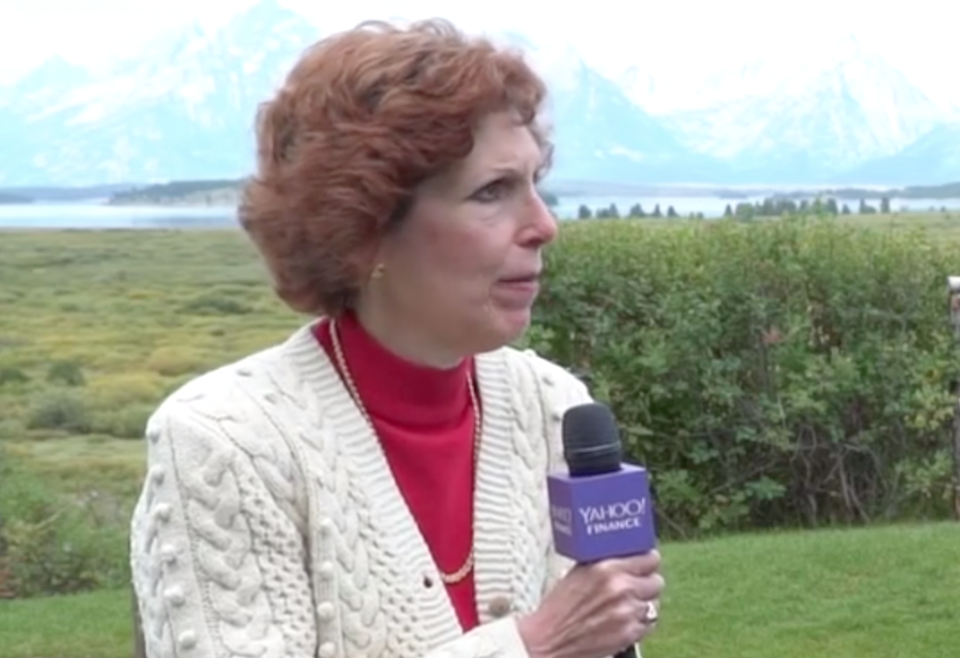Fed's Mester: U.S. economy is 'about at neutral'
Federal Reserve Bank of Cleveland President Loretta Mester said the Fed’s interest rate levels right now are at levels appropriate for the U.S. economy, suggesting that she may not see the case for changing interest rates.
“My own view of where they come is right now is we're about at neutral,” Mester told Yahoo Finance on the sidelines of the Fed’s annual Jackson Hole conference on Friday. “But as you know, there's a lot of bands of estimates around that.”
The “neutral” rate is monetary policy jargon for the level of interest rates where monetary policy is neither stimulative nor restrictive. Policymakers often compare estimates of the neutral rate to the current Fed interest rate to determine if monetary policy is appropriately calibrated. If the neutral rate is lower than current rates, than the Fed would be inclined to cut the federal funds rate. Conversely, if the neutral rate is lower than current rates, than the Fed would lean toward raising the federal funds rate.
In describing the current target range (between 2% and 2.25%) as close to neutral, Mester suggests that she thinks the Fed’s rates are about right where they are. But Mester acknowledged that it is difficult to measure the appropriate level of interest rates given recent economic developments.
“You're not going to have a precise estimate of that, but you're going to look at economic developments, financial market developments formulate your outlook,” Mester said.

Mester opposed the Federal Open Market Committee’s decision July 31 to cut rates by 25 basis points. But she told Reuters last week that it was a “close-call” decision, underscoring the challenges of interpreting the mixed data in recent months.
The economy is “still performing around trend” especially in the labor market and in consumer data, she added.
Although she pointed to trade as “definitely a headwind” for the U.S. economy, Mester said that companies in her district (covering Ohio and parts of Pennsylvania, West Virginia, and Kentucky) have have not cut back substantially on investment.
Mester said that in order for her to support lowering rates, there would have to be evidence of trade worries spilling over to consumer spending and showing signs of the U.S. economy “slowing further.”
The Fed’s next policy-setting meeting will be on September 18.
-Jillian Harding and Daryen Ru contributed to this report
Brian Cheung is a reporter covering the banking industry and the intersection of finance and policy for Yahoo Finance. You can follow him on Twitter @bcheungz.
Bonds, yields, and why it matters when the yield curve inverts: Yahoo U
YIELD CURVE INVERTS: Recession indicator flashes red for first time
Congress may have accidentally freed nearly all banks from the Volcker Rule
Read the latest financial and business news from Yahoo Finance



